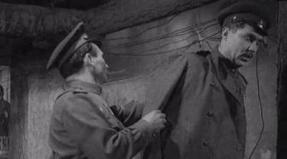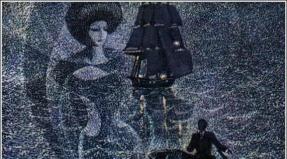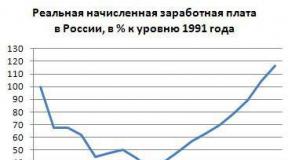Bakhchisarai fountain Very short content
Pushkin's poems are of great interest not only with artistic, but also from the point of view of studying the evolution of his literary tastes. In particular, at one time the poet was very fond of the works of Bairon and wrote several works in the imitation of the famous Englishman. Among them, "Bakhchisarai fountain" - a work on how later the poet himself, his beloved, whose name is still a mystery to his biographers to this day.
History of creating a work
Some researchers note that Pushkin heard a romantic legend about the Crimean Khan back in St. Petersburg. However, most likely, he learned her while visiting Bakhchisaraya, together with the family of General Raevsky at the beginning of the autumn of 1820. And neither the palace nor the fountain itself impressed him, since they were in the extreme launch.
Work on the poem "Bakhchisarai Fountain" (content presented below) was launched in the spring of 1821, but the main part of the poet wrote during 1822. In addition, it is known that the introduction was created in 1823, and the final finish and the preparation for the press was produced by Vyazemsky.
Who became the protothes of the heroes of the poem "Bakhchisarai Fountain"?
One of the main characters of this work is Khan Gary, more precisely by Kyrym Gerai, the Lord of the Crimea, which ruled from 1758 to 1764. It is with him in the Bakhchisarai Palace "Fountain Tears" and many other facilities appeared. Among them, the Mausoleum was especially allocated, in which the last love of Khan was buried according to the legend, who died from the hands of the poisoner. By the way, some researchers believed that it was in memory of this girl a mournful marble monument was built in the memory of this girl, which produced water droplets. Thus, it is possible that the real heroine, which is devoted to the poem "Bakhchisarai Fountain", the short content of which is shown below, was not at all the pool named Maria. How did this legend come about the princess? Perhaps he was invented in the family of Sophia Kiselieva, nee Potock, with which the poet was very friendly.

Bakhchisarai Fountain, Pushkin. Brief content of the first part
In his palace, sad Han Garya forgot about peace and enjoyment. He is not interested in a war or noise of enemies. He goes to the female half, where his handsaws of his wife weave in the longing of his caresses, and hears the song of the slave, which they sing to the glory of Georgians of the Sarera, calling her harem. However, the lover lovers herself does not smile anymore, as Khan sobbed it, and now in his heart reigns young Maria. This pool recently became the inhabitant of the harem of the Bakhchisarai Palace and cannot forget the father's house and his position of the adorable daughter of the old man's father and the enviable bride for many born facilities that were looking for her hands.

How did this daughter of the gentry hazing Hana Giray become? Hallerances of Tatars were poured into Poland and ruined her father's house, and she herself became their prey and precious gift to her lord. In captivity, the girl began to raise, and her only inquiry now is prayers in front of the limited maiden, which day and night illuminates the restless lamp. Maria is the only one who in the Khan Palace is allowed to keep the symbols of Christian faith in her room in her room, and even the Garya himself is not solved to break her peace and loneliness.
Mary and Zarema meeting scene
Night has come. However, he does not sleep with a zawa, which is processed into the room to the pool and sees the image of the Virgin Mary. Georgian as a second recalls his distant homeland, but here her look falls on the sleeping Maria. Zarema becomes knees in front of Polish prince and pray to get her heart of the Hire. I woke up Maria, asks Khan's beloved wife, that she needs from an unfortunate captive, dreaming only to go to his Heavenly Father. Then he will hear tells her that he does not remember, as it turned out to be in the Bakhchisaray Palace, but the capture did not become her burden, since she was loved by the Girl. However, the appearance of Mary destroyed her happiness, and if she would not return the heart of Khan, it would never stop before. Having finished his speech, the Georgian disappears, leaving Mary to mourn his bitter share and dream of death, which it seems preferable to the fate of the Hangehog.

The final
Some time has passed. Maria went to heaven, but he was not able to return the Hire. Moreover, on the same night, when Princess left this sinful world, Georgian was thrown into the marine bunch. Han himself looked at the joy of war in the hope of forget about the beautiful Polyakka, and did not respond to him. But it does not manage to him, and, returning to Bakhchisarai, Garyu orders to erect in memory of the Princess Fountain, which Virgin Taurida, who learned this sad story, called the "Fountain of Tears".
"Bakhchisarai fountain": analysis of the images of heroes
As already mentioned, one of the central characters of the poem is Khan Gary. Then the author sins before the story. After all, his hero is disturbed by the "Goats of Genoa", that is, he lived in no later than the 1475th year, and the famous fountain was built in the 1760s. However, literary crituals consider such a separation from historical realities quite natural and inherent romanticism.
As in some poems of Bayron, the Eastern Hero has its own antagonist European. However, Pushkin has the Giri himself, who having loved the Christian Mary, retreated from his eastern principles and habits. So, he is not sufficiently passionate love of the sun, which became in the harem of Moomgetan. In addition, he respects the feelings of Polish Princess, including religious.
As for female images, the Eastern Beauty Zarema, for which the main thing in life is sensual love, Pushkin opposes the immaculate Princess Maria. Of all the three characters, which are presented in the poem "Bakhchisarai Fountain" (a summary gives only a weak idea of \u200b\u200bthe original) the most interesting rushes. Her image balancing the "Easyness" of Khan Hyreya and "Western" Polyachka, which dreams only about the kingdom of heaven. Following the Baironov tradition, in the plot of the poems "Bakhchisarai Fountain" Pushkin (a summary of this work, read above) leaves many shortcomings. In particular, the reader is reported that Maria died, but how and why he can only guess.

Another, but inequate hero of the poem "Bakhchisarai Fountain" is the marble monument itself, erected by the gas. It seems to be merged into a single whole tears shed by Maria in front of the icon of the Blessed Virgin and Water of the Pochiny, in which the unfortunate zarem died. Thus, the poem "Bakhchisarai Fountain" (the analysis of this work is still becoming the subject of discussions of literary crimes) has become the second bayronic poem of Pushkin and his tribute to romanticism.
History of publication
The poem "Bakhchisarai Fountain", which is already familiar to you for the first time, was published on March 10, 1824 in St. Petersburg. And the author of her preface became Vyazemsky, who wrote it in the form of a dialogue between the "classic" and "publisher." In addition, following the text of his poem "Bakhchisarai Fountain" (the summary of this work you already know) Pushkin ordered Vyazemsky to print a story about Tavrida writer I. M. Muravyova-Apostol. In it, the father of three well-known Decembrists described his visit to the Palace of Khan Gurya and Solz mentioned the legend concerning his love for Mary Pototsk.

Ballet "Bakhchisarai Fountain"
In 1934, the famous Soviet composer B. Astafieva had an idea to write music for choreodrama on the work of A. S. Pushkin. The fact is that the poem "Bakhchisarai Fountain", the summary of which is presented above, has long attracted attention as a fertile soil for creating a spectacular musical performance. Soon, in collaboration with the librettist N. Volkov, the director S. Radlov and Balletmister R. Zakharov B. Astafyev was created by the ballet, which for more than 80 years does not come down from the scenes of many theaters of Russia and the world.

Now you know what "Bakhchisarai fountain" is Pushkin's poem, created by him in the oppression of Byron during the southern link.
Many, as well as I, visited
this fountain; But no longer no
others wander the distance.
Saadi
Giri is located in his palace, "Rabolen Dvor" is crowded around. Any desires are warned, Ham Hismanizes. Everything around is fragrant and breathes with love, joy. Ho Gary in sadness. He drives everyone and remains alone.
The slave between those sing ("Tatar Song"), glorifying the zarem, "the star of love, the beauty of the Harem." However, the Georgian beauty "praise does not listen" and "droked the young head." Garya blinked in love with a snack since the Polish Princess Maria was brought to the harem. Previously, Maria lived in the house of his father, not knowing anything. Maria was beautiful, played on the harp, and ...
Crowd of wine and rich
Maryan's hands were looking for
And a lot of young men on it
In the suffering secretly wested.
Ho in silence soul
She did not know love yet
And independent leisure
In the father's castle between the girlfriends
One fun devoted.
However, the "Tatars of Tatars on Poland looked by the River", turning the castle and "peaceful dubrava" into the ruins.
Maria is sad and tears pour, "in captivity, quietly fading," recalls the native land, hesitates along the lost house. Han to please her, softens "harem strict laws", does not disturb her, ordered not to disturb her and servants.
Night, eunuch, Guarage, listened to the night sounds over the Bakhchisaram. He noticing anything suspicious, falls asleep.
At this time, Zarema penetrates the room of Mary. Ta wakes up, Zarema asks Mary to listen to her. She tells about himself, as she "in the shadow of a harem blew", as one day ...
Prev Khan in a vague expectation
We appeared. He is a light eyes
Stopped me in silence
Called me ... and since then
We are in unlimited
Breathed happiness; and never
Neither slander nor suspicion
Neither angry jealousy torment
No boredom confused us.
Maria! You came before him ...
Alas, since his soul
Criminal Duma overshadowed!
Zarema adds that she understands: the girling cooled to her, Zarem, is not guilt of Mary, but it adds:
All the harem you are alone
Could you still be dangerous;
Ho i'm born for passion
Ho you love like me, you can not;
Why caultory beauty
Are you a weak heart disturb?
Leave the Hire I: He is mine;
I'm burning his lobsanya on me,
He gave me an oath of scary ...
Zarema asks Mary to distracted from her blinded Hire: "Despress, asking, longing, than you want, disappearing him ..." Zarema says that "Between Khan's slaughters, I forgot the faith of the previous days," but her mother was the same faith as Maria . She demands Mary to swear her memory that she will "return" the Hire, mentioning after that, that she "near the Caucasus was born" and, accordingly, owns a dagger. Zarema leaves. Maria remains in fright and perplexity:
An innocent Virgin is notpunyen
Tongue of painful passions
Ho voice is vaguely to her;
He is strange, he is terrible to her.
The only desire of Marya is to be left alone, forgot about it, provided it with solitude.
Time passes, Maria dies.
Gary remains awesome.
With a crowd of Tatars in someone else's limit
He sent an evil raid again;
He is again in the storms of combat
It is gloomy, bloodthirsty:
Ho in the heart of the Hana feelings of others
Flame is lucid.
He often in the siquests
Sable lift, and with a scope
Real estate suddenly
Looks with madness around
Pale, as if a full fear,
And something whispers, and sometimes
Fuel tears pours river.
Harem is forgotten by a gyreum. Wives are aging "under the custody of the Cold Skobc." Georgians also have long been not among them, as she ...
Harem guards are dumb
In the puchin of water is lowered.
That night, as the princess died,
Her suffering was accomplished.
What kind of fault
It was terribly punished ...
Han, returning backwards (pre-"devastating the Caucasus Fire Close Countries and villages peaceful Russia"), erects a marble fountain in Maria's memory.
The author suggests that he saw this fountain by visiting "Bakhchisaraya in oblivion of a dormant palace." Everything is deserted around, everything is cursing: "Where did Khany hide? Where is the harem? Everything is quiet, everything is sad ... "However, the author does not indulge as Elegy memories of past centuries, he does not think about the strugnution of being, he sees for a female image:
Mary Pure Soul
I was, or zarem
Rushed, breathing jealousy,
Medium empty harem? ..
All the hearts of the heart fly to her,
About her in exile longing ...
The work of a kind of anthem with this southern edge ends:
Fan Muses, fan of the world,
Forgetting and fame and love,
Oh, soon I will see you again,
Brecha funny salgir!
I will come to the slope of the seaside mountains
Secret memories full,
And again Tauric Waves
I will make my greedy gaze.
Magic edge! Ochra Otchae!
Everyone is there: hills, forests,
Amber and yahont grapes,
Valley shelter beauty
And jets and poplary cool ...
All the sense of traveler manit
When, at an hour of morning, a serene,
In the mountains, expensive coastal.
His usual horse runs.
And green moisture
Before him and shook and shame
Around the rocks ayu-dag ...
The idea of \u200b\u200bthe romantic poem A.S. Pushkin "Bakhchisarai Fountain" arose under the impression of his journey through the Crimean Peninsula, and his stay in Bakhchisarai, which he visited with Raevsky in the fall of 1820. The story was told by Pushkin's favorite woman. Only one of this fact encouraged the poet to visit the Bakhchisarai Palace. The poem took a worthy place in.
The work was written in 1821-1823, and is one of. The choice of ideologically-artistic directions imposed his imprint of Pushkin's passion for the works of Bairon - English Poet-Romance.
The plot of the poems is simple, and its content can be set forth in a nutshell. She herself is saturated with the poetic descriptions of the Palace with the romantic images of the main characters of the Bakhchisarai fountain, which gives the work a unique, Eastern charm.
The main hero of the poem - Han Gary - the personality is heroic and legendary. As it should be Hanu Magometan Faith, he had several wives and even more concubines, which he brought from the conquered countries. For ordinal in the harem, the faithful old eunuch was stable.
The wives did not need anything, and were happy and calm. Everything was smoothly and calmly in a harem. Women sing a song in which the beauty of the favorite coach of Khan, Georgians of Zarema. Zarema also slave, but she loved Khan with all the soul, and forgot his native land and his faith forgot. Until recently, she was happy in love.
But on the day of the events described, the events do not have fun in his way, it does not rejoice with everyone. Her heart is compressed from the premonition that the favorite Han Garya forgot about her, carried away another.
At the same time
indifferent and cruel
Gury despised your beauties
And nights of cold clock
Conducts gloomy, lonely
Since the Polish Princess
In his harem enclosed.
A new concubine appeared in the harem, the Polish Princess Maria. Her beauty and power of the Spirit is delivered by Han Gary. He is in love with Maria, and does not want to take it by force. He created special conditions for her. Even eunuch should not enter it. Khan wants Maria to love him and gave herself. But the Polish princess, the vigorous thought that she would be belonging to a person who destroyed her happy world, ruined the land in which she lived, killed her parents. All his time she spends in the prayers of the Virgin Mary and in tears.
At night, I will grow to Mary, it is likely to kill the opponent, but seeing the lampadku, the icon and the Christian cross in her room, understands that the girl is one with her faith. Then it is decided to talk to the Polish beauty.
She admits Mary that he loves the Hire and does not represent him in the arms of another woman. She begs the Polish Princess Lee Spells, Way Walking, to dismiss the heart of Khan. Georgian gives to understand Mary, that it is ready to even kill her. Sarera gone.
And Maria suddenly realized that she was waiting for her. At the thought that her will kiss her father's killer, the girl embraced horror. Neutro was found dead. What happened in the camorle after the care of the Georgian, you can only guess.
Probably, a sensitive eunuch, or someone from the servants heard that he was driving his room, only in the death of Polish beauty accused her, heared. In the punishment, the girl was drowned in the sea.
With a crowd of Tatars in someone else's limit
He sent an evil raid again;
The wives were doomed to grow old without male attention, under the supervision of old eunuch.
Returning from the raids, Khan in memory of Mary ordered to put a fountain in the corner of the palace.
Over him with a cross is autumn
Moometan Moon
(Symbol, of course, daring
Lack of miserable wine).
There is an inscription: eating years
She was not smoothed yet.
Later he was called the fountain of tears.
This is the summary of Pushkin's poem "Bakhchisarai Fountain". It can only convey the plot, but will not describe the beauty of Pushkin Straf and the brightness of the images created by the poet. To fully enjoy the charm of Pushkin verse, its expressiveness, it is necessary to read the work itself.
In his palace sits formidable Han Gary, angry and sad. What is heaty than the Gary, what does he think about? He does not think about the war with Russia, he does not suffer from the goats of enemies, and his wives are faithful to him, their devotee and evil eunuch. The sad girling goes to the abode of his wives, where the slab sing the song to the glory of the beautiful sunshine, the beauty of the harem. But herasshed, pale and sad, does not listen praise and sadness, because she was blown away by the Gary; He loved the young Mary, the recent harem inhabitant, which fell here from his native Poland, where she was a decoration of the parent home and enviable bride for many rich venels that were looking for her hands.
The Tatar hordes that fucked by Poland ruined the house of Maryan Father, and she herself became the halter of the Hire. In captivity, Maria is tugged and finds fade only in prayer before the icon of the Blessed Virgin, which burns the restless lamp. And even the Giri himself gerants her peace and does not violate her loneliness.
Sucks the palace, sleeps harem, but not only one of the genius wives is not sleeping. She gets up and suffocating goes by the sleeping eunuch. Here it will call the door and finds himself in the room, where the lamp lamp is burning before the Master of the Virgin and reigns unwielding silence. Something long forgotten moved to the chest of zarema. She sees sleeping princess and descends to her knees with a prayer. The wokeered Maria will ask the zarem, why did she find himself here later. Zarema tells her his sad story. She does not remember how it was in the Hire Palace, but he enjoyed his love undersally until Maria appeared in the harem. Zarema begged Maria to return her heart of the Hire, his betray will kill her. She threatens Mary ...
Craisen your confessions, it disappears with a snare, leaving Mary in embarrassment and in dreams of death, which is a Miley fate of the minia.
The wishes of Mary came true, and she won, but the Garya did not return to the zarem. He left the palace and again looked to the joy of war, but also in battles can not forget the beautiful Maria. The harem is left and forgotten by the gyreum, and the hearer is thrown into the purple of the water by the guards of the harem on the same night when Maria died.
Returning to Bakhchisarai after a disadvantage of the village of Russia, the Garya erected in memory of Mary Fountain, who is a young Virgin Taurida, having learned this sad legend, called the fountain of tears.
World of Heroes
Giri (Pasha) - one of the three central characters of the poem, Khan, the owner of the harem; The name is conditionally - hires (gerames) called almost all Crimean Khans; In the inscriptions on the "real" fountain of Bakhchisaraya, the Crimea Garyre is mentioned, 60s. XVIII century However, Pushkinsky is afraid of "Goen Genoa" (which could until 1475); In the draft hero called Devlet-Gyrey (name Hana XVI century); Polish Princess Maria Pototskaya Plenyl, according to legend, Kezim-Khan (XVIII century).
Rent of the city from the history of principle; His suffering is the suffering of a man in touching with another civilization.
In the "Eastern poems" by J. Byron (on which the Bakhchisarai Fountain oriented) provides for the plot role of the "Eastern Antagonist" of the main character, which is always European and individualist. "Bayronovski", as if from the middle. His "Pasha" is a glorious warrior and owner of a luxurious harem (a description of the harem in the Poem S. S. Bobrova "Tavrid"); Some techniques for creating an "eastern color" around the image of Pushkin borrowed from the "Eastern Roman" T. Mura "Laland Hands". G., Like the hero of the Bayronovskaya "Abido Bride", gloomy squeezes in a circle of approximate; His amber letter is ground; It is immersed in weightless Duma - about the reason of which the reader will know much later. But at the same time, Fabul is sharply shifted (and therefore, the image status is changed): there is no individualist's characters; Formally, the main character becomes Khan G. (with which author-northerner) is ironically correlated; However, it is really pushed into the shadow of two heroines - Mary and Zarema.
In the end, the city turns out to be its own antagonist. For, having loved the polka-Christian captured by him, he step by step retreats from his eastern habits; He is no longer delaited to the passionate love of Georgians of Zarema, which became captive by Muslim; It allows polka to retire and is considered to be with her feelings (although all other prisoners are luxurious-insensitive), including with the feelings of religious. As a result, the smadic, deprived of all the passion for the beauty of the European woman produces a coup in the soul. Having lost Maria and executive (apparently killed her) to zarem, he is unable to enjoy neither a harem, nor even the war: "... in the heart of the Hana feelings of others / the flame is uncertain." Temarily thoughtfulness - this distinctive feature of many Pushkin heroes - overtakes G. sometimes even during the juice. And as a conflict of Zarema and Mary reflects the struggle between "Muslim", Eastern, "Christian", the European, principles that penetrate his heart, so embodies it and "Fountain of Tears", arranged in memory of two in all opposite beloved g.: "The unplanned symbol", the cross, crosses the Magometan Moon. Later, Pushkin generally recognized the character of the unfortunate, "melodramatic" ("refutation to critics").
In 1824, Pushkin will write the poem "Fountain of the Bakhchisarai Palace", in which once again correlates himself with the "split" in the publication of poems will be marked by 1820, so that they arise that they are created before the poem; They will finally show a metaphorical layer of the plot: a harem is a symbol of the human soul, Maria and Zarema - only the images of heart leisure "anti-erase" in the subsequently, Pushkin will take another attempt to create the image of the "Christian Muslim" Tazita, the main character of the in-departed poem "Tazit" (1829- 1830).
By 1825, there is a dramatic processing of the poem: "Kerim-Gury" A. A. Shakhovsky.
Zarema - concubine and prisoner Khan Hires; Voluntarily and passionately breathing with happiness, loves him. She is unable to accept the new choice of lover and the Lord - with his attachment to the new captive, the Polish Princess Mary. Introducing at night in her "demonish celua",
3. Pronounces a stormy monologue, in which confession is mixed with a threat, and tears with anger. From this monologue (which was a mandatory plot element of the "bayronic" poem) we learn that 3. - not just "Georgian", but once, before I got into the harem, was a Christian. (Therefore, it demands from Mary, so that she swore with his faith, which is ready to disapperate the hire.)
This motive is harmoniously (and at the same time contrast) balancing the images of the three heroes of the Bakhchisarai fountain. 3. To the same extent violates its demonic passion to the indifferent morals of Harem, which Maria violates them with their angel like. One mother brought another - father. Both are related to the right of birth with a Christian tradition - one with its western branch, the other - with the East. But if the meeting of the Hire with Maria destroys his "Moometan's integrity", then his meeting from 3., on the contrary, the concubine rejected from Christianity. Mutual "half of the" Hire and
3. The ideal wholeness of Mary is shaded.
Following the Bayron poetic, Pushkin blurs the plot of the poems; The reader knows that 3. eventually was executed; It guesses that her night threat was not empty; But this is only a transparent hint of impatient circumstances.
Maria is the central character of the poem. The central not according to the formal characteristics, but according to the psychological contrast, all the other characters - from Zarema to the Gurya and Eunuch. Such a shift of the plot center of the Bayronic poem from the hero to the heroine was not accidental; According to unwritten rules of the genre, he was identified with the author, he was his literary alter ego, - and Pushkin, as he was convinced during the work on the "Caucasian prisoner", was not suitable in the heroes of the "romantic poem". In the Bakhchisara Fountain, as it were, the situation was issued in the "Caucasian captive" de facto: feminine is eclipsed by male.
The image of Mary Pushkin builds to the heellendar princess of Maria Pototsk, which, according to legend, was captivated and placed in his harem in the XVIII century. Kezim Gary-Khan. In Pushkinskaya discharge from the book I. M. Muravyova-Apostle, and the "Travel of Tavrida", accompanied the publication of the poem, the truth of the legend was rejected; For the poet, this did not matter. It was important for him to create a "bayronic" type of Christian, European, mounted East. His young Polka is brought up by the gray and gentle father, who killed Gary, and does not want to recognize any other relations between a man and women
tire besides decens. (Partially, she managed to awaken in the hire exactly such feelings, as generally bring it from the "Mohamthansky" equality to himself) M. - Northerkhanka and in appearance (dark blue eyes), and on temperament ("Movement Slender, Live"), and Life-seeking (separation from the earthly Fatherland only brings it to a meeting with the Fatherland of Heaven).
Everything is ready for death: "What to do in the desert of the world? .." Long to wait for the junction for a long time: not wanting to himself, M. Himself from the Hire another concubine, I will scare; She, who was at night in the "Celle", M., semi-sustained-semi-conversion "opponent", preserving embarrassed silence (the only dramatic episode of the poem).
But the beauty of M. so unearthly property, the features are so ideal that the author refuses to catch up with everything to the end. He only hints that a terrible threat ("I own a dagger") is pursuant, - telling about the cruel execution of the jaws. (Zarema is a passionate, active heroine; about her death can be spent straight.) In the jets of the fountain of the tears, erected by the grease, as if symbolically merged with tears, spilled M. in front of the icon of the Blessed Virgin; The puchins in which the unfortunate zarema was immersed; Mournful crying hire on them.
The opposition of the "cold-beautiful" and "sensual-beautiful" heroin will continue in Russian prose - right up to the late I. A. Bunin (Natalie stories, "Clean Monday").
In Bakhchisara, Grozny Khan Gury is angry and segged. He drives a slave courtyard. What is the thought of Khan Girea? Not hiking on Russia and Poland, not a bloody revenge, not the fear of conspiracy in troops, mountaineers or genuine and not suspicion of treason in the harem.
Hire horses do not know the cheating. They are similar to the colors behind the glass windows, live as in the dungeon. They are surrounded by boredom, laziness. Days are alone: \u200b\u200bthey change outfits, play, talk or walk underwater. So their life passes, love fades.
Zhemnya guards evil eunuch. He performs the will of Khan, he never loves himself, tolerates ridicule and hatred. He does not believe any tricks of female in the lava.
Eunuch always with wives: And during their swim, indifferent to their charms, and while sleeping girls he erupts their whisper.
Sad and thoughtful Gary goes in a harem. Fantastic wives are watching the fish, dropping on the bottom of gold earrings. The concubine is distributed by Sherbet and sing the Tatar song: the most brushing is not the one who saw Mecca in old age, who died in battle on the shore of the Danube, but the one who cherishes Zarem.
Georgian zarem nothing nice: Gary sobered her. No in the harem of his wife's beautiful zarema, more passionate, but the Gary changed the zarade for the sake of the Polish Princess Mary.
Maria was a refill of his father, a beauty with a quiet temper. Many were looking for her hands, but she did not love anyone. Tatars came to Poland like fire on the Niva, Father Mary found himself in the grave, and his daughter was in captivity.
In the Palace, Bakhchisaraya Maria "Crypt and sadness." For she, Khan softens the laws of the harem, the guardian of the royal wives to it is not included. Maria lives in privacy with his concubine. In her dwelling in front of the Lamp of the Virgin Mary day and night, the lamp is burning, the prisoner whips about the homeland.
Magic eastern night came. Everyone in the harem fell asleep, even eunuch, although his sleep is disturbing. Doesn't sleep only. She passes by the Sleeping Enuha in Mary's Room. Lampada, kivot, the cross awaken vague memories in it. Sare on the knees prayes sleeping Maria. Maria wakes up, and Zarema tells her his story. She does not remember how he got into the harem, but there she bloomed, and Khan, returned from the war, chose her. Heare was happy until Maria appeared. Zarema demands to give her a hire, threatening the dagger.
Zarema leaves. Maria in despair. She does not understand how you can dream about such a darkness, how to be a captive wife. Maria dreams of death in the "Desert of the World".
Soon Maria died. Who knows what caused her death? Gary left his palace for the sake of war, but his heart did not remain the same: he grieves the dead.
Among the forgotten wives, the Hire there is no drill. She was drowned that night when Princess died: "What a fault was, it was terribly punished!"
Returning with victories, Han erected a fountain in memory of Mary. Water in it is constantly dripping, as if the mother cries about the sown in the war. The fountain of the tears - so called his Virgas, learning a loyalty.
The lyrical hero visited Bakhchisarai. He examined the rest, gardens, Chanov cemetery, fountains. Everywhere he was pursued by the shadow of the Virgin, Mary or Zarema. This image reminded the lyrical hero of the one, about whom he hurts in exile and who tries to forget.
The lyrical hero hopes for a quick return to the magical Tauride region.
- "Bakhchisarai fountain", Pushkin's poem analysis
- "Captain's daughter", summary of the head of Pushkin
- "Boris Godunov", analysis of the tragedy of Alexander Pushkin
- "Gypsy", analysis of the poem Alexander Pushkin
- "Cloud", analysis of the poem of Alexander Sergeevich Pushkin



















